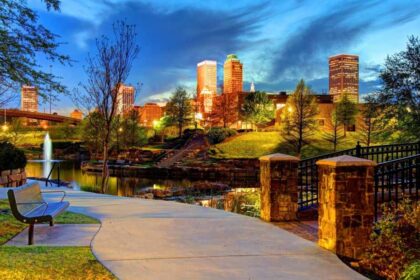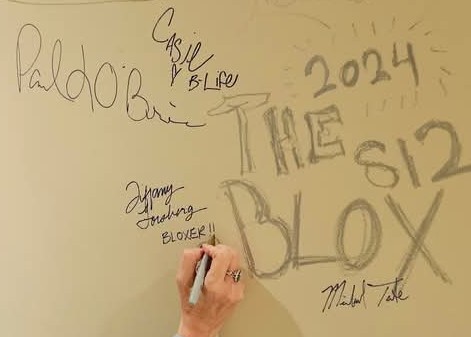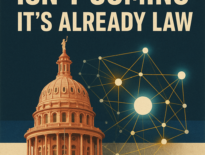
Article Highlights
Differentiation
If someone told you Tulsa was the next hub for startups, your first reaction might be to squint and wonder if they meant it ironically. Tulsa? Really? Isn’t that where Route 66 nostalgia and oil wealth go to retire?
Here’s the thing: the people still asking that question are the same ones who laughed off Austin in the early 2000s. Or who thought Tesla would never actually leave California. Or who, more recently, decided Miami was the new tech capital after seeing a few crypto conferences by the beach.
Tulsa is becoming a startup hub not because it wants to be, but because it makes sense. And what’s happening there is a case study in how innovation migrates; from the coasts to the center, and into communities that rewrite the rules.
The Great Innovation Migration: Why Silicon Valley Came to Texas
To explore Tulsa (or how to develop entrepreneurship in your city), you need to understand what happened to Texas. For the better part of a decade, the narrative was that the Bay Area was hemorrhaging talent and capital — and that Austin, Dallas, and Houston were the beneficiaries. But that’s the shallow take.
The why behind the migration matters more.
Startups didn’t come to Texas because “it’s cheaper” — that’s just lazy shorthand. They came because the Valley matured while experience elsewhere caught up with the implications of the internet. When a region becomes dominated by late-stage VCs, over-regulation typical in matured sectors, elite private equity, and enterprises optimizing EBITDA, founders might find they suffocate under the weight of maturity. Now, be clear, none of this means that Silicon Valley is waning nor am I misleading you to infer that I’m saying the ecosystem there doesn’t remain dominant (by far!); we’re exploring the origins of Silcon Valley with the spark that drove Austin. Texas had the raw material and culture (“different”) necessary for innovation to emerge there as meaningfully as it had previously done in N. California: lower costs yes, but also a diversified economy, strong creative sectors, legacy industries aching for digital transformation, and a political climate — like it or not — that favored deregulation and self-determination. It wasn’t just cheaper; it was a startup sandbox with purpose.
If you think Silicon Valley is a result of the microchip, military investment, or smartphone, you’re horrifically misled by biased advisors. What we find in emerging ecosystems of innovation are origins in enterprising entreprenurship, creativity, and even revolutionary thinking – it embraced different. It’s within that history and framework of risk tolerance and creative celebration that engineers move beyond coding into creating solutions.
Texas didn’t isn’t the next Silicon Valley. It became something else entirely: a platform for the next industrial reinvention.
By the way, we can see evidence of the implication of regulation, both in ecosystems flourishing where entrepreneurs are free to act and when regulation grows and stifles technology. Free market PhD Economist Vance Ginn, reflecting on news of North Carolina drawing attention FROM Texas, thanks to the massive demand for electricity in AI data centers
Let’s Move on to Tulsa: The Frontier of Innovation
Tulsa has what early-stage founders are actually looking for: breathing room, affordability, meaningful support, and a chance to matter.
Let’s start with the obvious: Tulsa Remote; a clever play to pay people to move there. But beneath that PR campaign was a serious bet on talent density, social capital, and civic engagement. The program isn’t just giving people a stipend to relocate to Tulsa — it’s embedding them into a community. What founder wouldn’t want to move to a place actively designed for integration?
Then there’s Atento Capital, Build in Tulsa, and ACT House — funding sources and startup development organizations (SDOs) that don’t just write checks but help build the infrastructure of entrepreneurship: mentorship, networks, and co-investors. Founder Institute, one of the foundations of any meaningful startup ecosystem, launched in Tulsa right on timeline after we launched and brought the catalyst to Austin, TX. This is the crucial difference. In most cities, the money is either legacy wealth or real estate-driven; in Tulsa, capital is coming with a mission to create opportunity, especially for high-growth models outside of the coastal monoculture.

Add to that Tulsa’s cultural and industrial heritage. Oil and energy built the city, but like Houston or Midland, it’s ready to evolve, and it has the institutions to do so. Arts, music, and community are woven into Tulsa’s fabric, much like Austin’s weirdness serves as an engine for creative-class entrepreneurship. The city’s size allows for serendipity, cross-sector collision, and influence that actually scales. In a sense, it enables different. Try walking into a chamber event in Chicago or a VC office in Miami and finding collaborators who want to disrupt things (trust me, I’ve tried).
Heck, my name is on a wall outside a greenroom in Tulsa because they film a reality TV show there helping entrepreneurs bring ideas to life — and they pull in advisors from throughout the world to ensure that founders are learning from the best. Embracing different.
Different: Silicon Valley, Austin, Tulsa
There’s a fascinating symmetry forming between early-stage Silicon Valley, mid-2000s Austin, and today’s Tulsa.
In early Silicon Valley, you had universities, defense contracts, a counterculture movement, and nascent capital. Not a lot of flash. Just semiconductors and people with mustaches and pocket protectors.
Austin fifteen years ago had the same ingredients: a university spinning out talent, counterculture vibes, no state income tax, people who wore flip-flops to pitch meetings, and it seems we’re back to mustaches.
Tulsa, today, has that same DNA. A vibrant arts scene. Proximity to major metros. University pipeline. Cost of living low enough that you can fail a couple of times without sleeping in your car.
Notice, not once there did I say “tech”
Tech is NOT the answer in startup economic development.
Austin doesn’t want to be like the rest of Texas just as San Francisco was definitively not like other cities; and Tulsa, close enough to Bentonville or Oklahoma City, also plays that part of being different from typical.
Raleigh-Durham? Why not Nashville, Denver, Chicago, or Miami? Despite their merits, lack one of the key ingredients: intentionality as embracing different. Again, don’t misunderstand me, they’re all exceptional cities with great appeal for innovation, corporate development, and investment in startups, and yeah, obviously Miami and Nashville, in particular, stand out as different; it’s in how cities define the role they intend to play for entrepreneurs, not “in tech,” while ALSO demanding they remain distinct from the rest.
- Startups are not small businesses
- Tech doesn’t mean coding
- Large companies aren’t entrepreneurs
Entrepreneurs, founders of startups, ARE different and your culture must encourage that if you expect tech to result in anything innovative or meaningful.
Tulsa, like Austin and Silicon Valley before it, is focused in their having some distinction for entrepreneurs AND in culture. It’s trying to be the place where founders come to build — not just exit, not just raise, but create real companies with real traction, rooted in place and purpose.
How to Build a Startup City (Spoiler: It’s Not About Startups)
The cities that thrive in entrepreneurship do so not because they “have startups,” but because they orchestrate startup ecosystems.
Want to be the next Tulsa? Here’s the cheat code:
- Create collision points. Coworking spaces, large social media groups for “startups” (not businesses!), events, and civic orgs that force investors, founders, students, and operators to share oxygen.
- Fund locally. Stop waiting for Sand Hill Road to invest in your city. Build your own venture funds that invest early and stay in the deal. More though, demand that they fund the ecosystem itself, as sponsors, because they are the patrons of different.
- Embrace failure. A startup-friendly city is one where failure doesn’t brand you — it builds you.
- Exclude noise. This is a tough one for most to willingly and diligently pull off but it’s critical because in being different; you cannot allow the waste or misdirection that comes from advisors, mentors, or investors who are not experienced first-hand in startups.
- Back humans, not just ideas. Innovation is social. Tulsa succeeds because it bets on people, not trends.
From Silicon Valley to Texas to Tulsa, the innovation economy has been shifting like tectonic plates. I’m not making this up to paint a picture; we study this going back further, as it was the Midwest before that, as evidence, that with gravity, logic, and pattern, innovation shifts to where being different is the culture. If you want to see where the next Silicon Valley is, don’t look for the richest city. Certainly, don’t look to the “tech” city or the next buzzword seeking innovation. Look for the scrappiest one. The one where the weirdos, artists, engineers, and educators are bumping shoulders at happy hour.
Tulsa might not have been on your radar. But it should be now. The future of innovation isn’t just big coastal money — it’s the small-town hustle with a high-speed internet connection.



I’ve been bullish on Tulsa for years! It has the potential to be an interesting player. Cc: Nicholas Lalla Tulsa Innovation Labs
Aaron Utsler Some of my earlier work was in noting proximity to major cities… arguably, actually why Austin boomed (for example). I keep hearing talk of Bentonville booming but I can’t help but wonder if all that makes it amazing, also works against it a bit in *this* regard… and yet, it’s in throwing distance to Tulsa.
Paul O’Brien, agreed. I almost mentioned Bentonville / NWA. That general area has a good mix of corporate entities, universities, land for testing (esp aviation), good cost of living, etc.
I’ve been singing Tulsa’s praises for 5 years. Great to see it getting some recognition.
Cheers Cody. We might consider looking at Austin Tulsa as a sister city kind of thing, on behalf of startups and investors.
This will be interesting
Austinite here
Love this! I had a chance to visit OKC and Tulsa this year. Everything you mentioned on this newsletter is spot on. The folks in Oklahoma are making it happen!
Now consider… mindblowing… where is the high-speed rail turning Brownsville (Spacecity) to Tulsa into America’s startup corridor? Connecting SATX, Austin, Dallas, Oklahoma City, Tulsa… maybe to Bentonville?
Golden Hurricane! Great school and city. Excellent quality of life. A lot going on.
I visited Tulsa in 2017 and felt I had stepped time-travelled to Austin 1990s. I got an Austin 1990s vibe – smaller city, a bit laid back, friendly, and without the horrible traffic that Austin acquired since the 2000s. Way more liveable than Austin of today. It’s an up-and-comer for sure.
That’s a fantastic observation about the momentum in Oklahoma. The combination of founders, investors, and community is what builds a truly resilient ecosystem. It’s inspiring to see this kind of energy and collaboration outside of the traditional hubs.
Invesho can be useful here by helping these founders connect with a wider network of investors, amplifying the incredible momentum they’ve already built and ensuring their ventures get the support they deserve to scale.